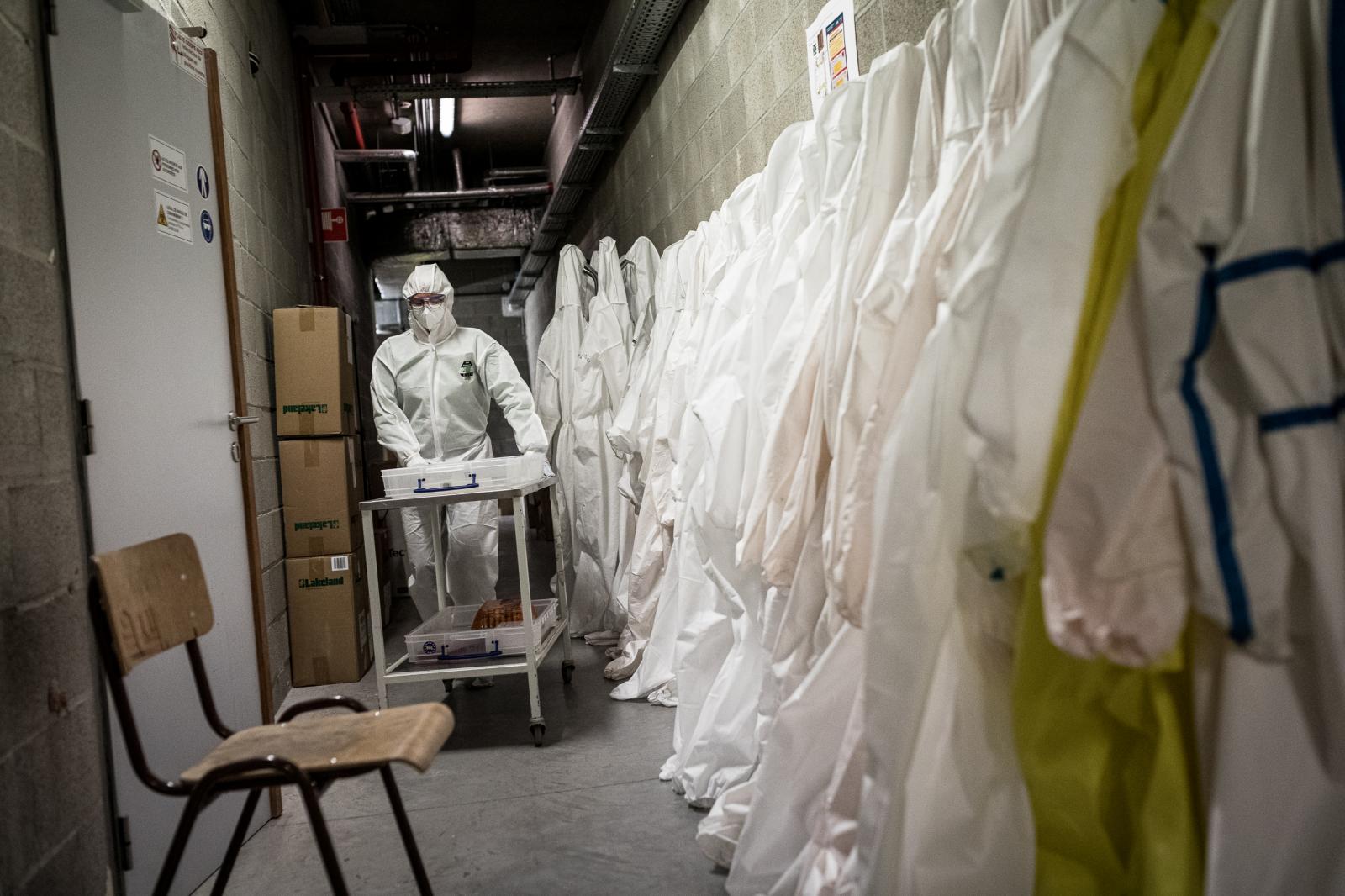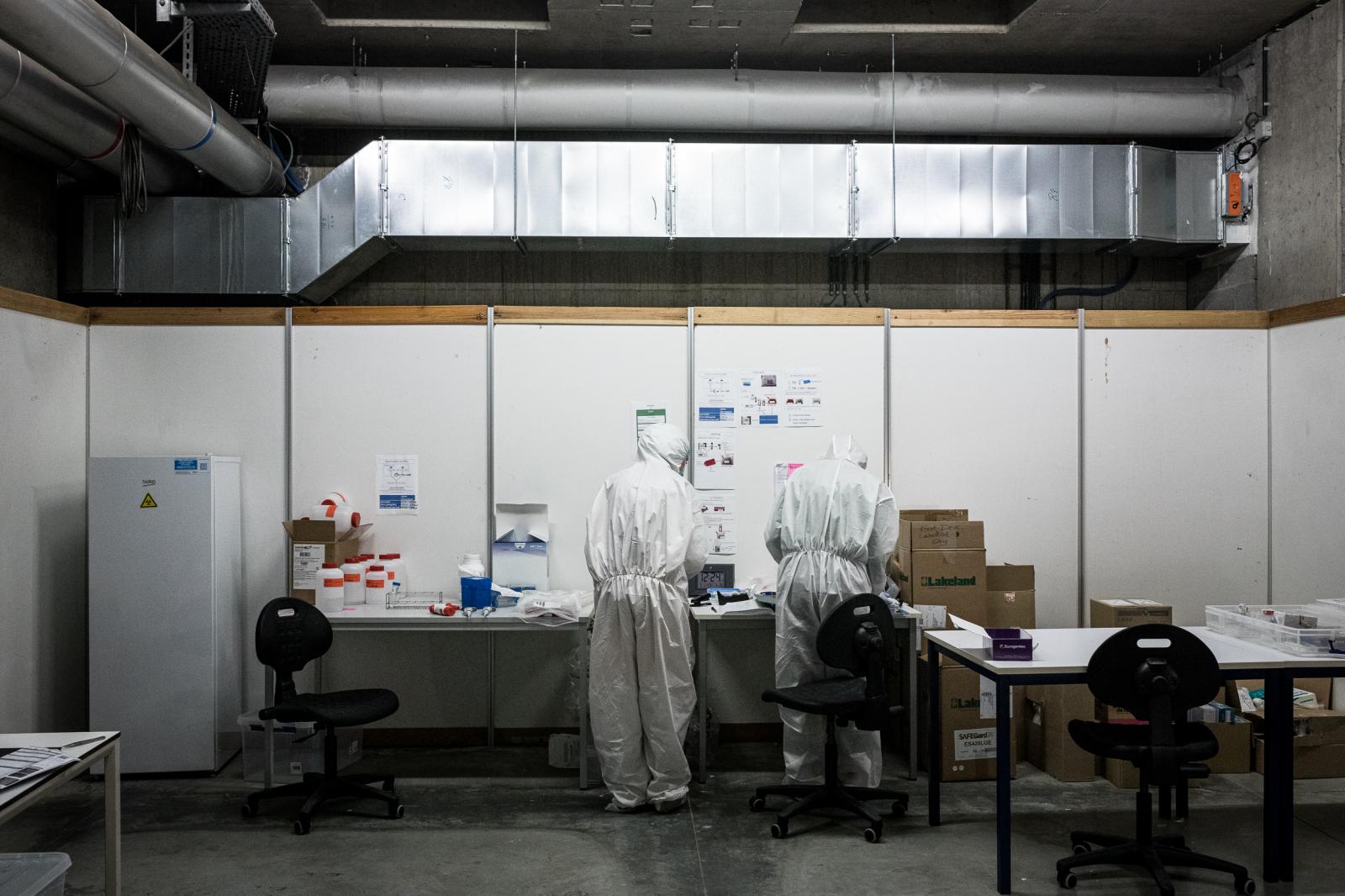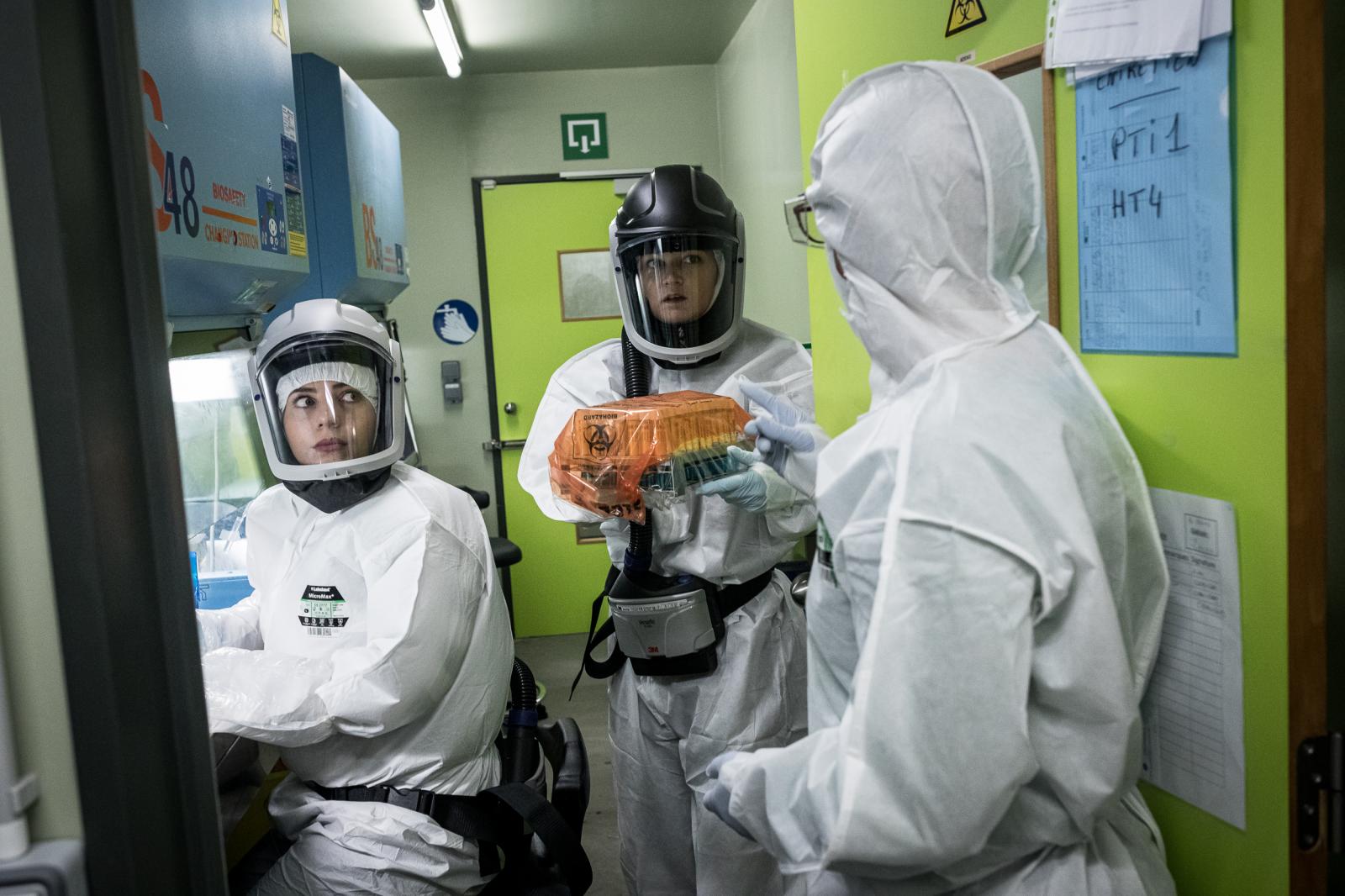Public Project
THOSE SCIENTISTS BEHIND THE COVID19 TESTS
While the pandemic was hitting the whole world, all countries were facing the same problem. All were dependent on reagents supplied by different major players in the global market.
The idea of the scientists at the University of Liège was from the beginning to develop a method that would allow Belgium to be autonomous in the face of the massive amount of testing needed.
It is therefore to GreenMat, a chemistry laboratory attached to the University of Liège, that we owe a particularly innovative method of producing magnetic beads. This discovery is the result of the work of three researchers, Frédéric Boschini, Jérôme Bodart and Vincent Delaval. The team was formed and after only a few days, the method was perfected. The GreenMat was capable of producing in large quantities the reagents missing on the world market to carry out PCR tests in large numbers and very quickly.
The production is so important that the GreenMat team will soon receive orders from other countries. And this goes far beyond the European framework.
It was then necessary to be able to ensure the continuation of the PCR testing procedure, so Professor Catherine Sadzot was asked to form a team of researchers capable of working on the samples received. All on a voluntary basis, this is how Mrs Sadzot worked for months in the shadows. The laboratories had to be installed in the cellars of the GIGA tower, on the site of the CHU du Sart-Tilman.
The team would receive thousands of tests daily. And the riskiest part of the procedure was going to take place in these hastily installed premises. The high-security laboratories are thus classified L2 or L3. The purpose of this first part, the deactivation of the virus to allow for future extraction.
Here, extremely strict measures to work there. Some volunteers even wear suits with respirators.
These volunteers have, for months, worked in an extremely risky environment to prepare the samples.
The final step is conversion and amplification. And for this, the University of Liège asked Professor Laurent Gillet to set up a series of laboratories in the veterinary faculty of the University of Liège, capable of producing more than 2000 tests per day. This part, although less risky in terms of handling, remains no less difficult. Here too, you have to be extremely concentrated in order not to make mistakes in the process. This is why the teams of four researchers work no more than four hours a day. On a voluntary basis once again.
The joint work of these researchers has enabled Belgium to be the first country in the world to be completely autonomous with regard to Covid19 testing.
3,459

























